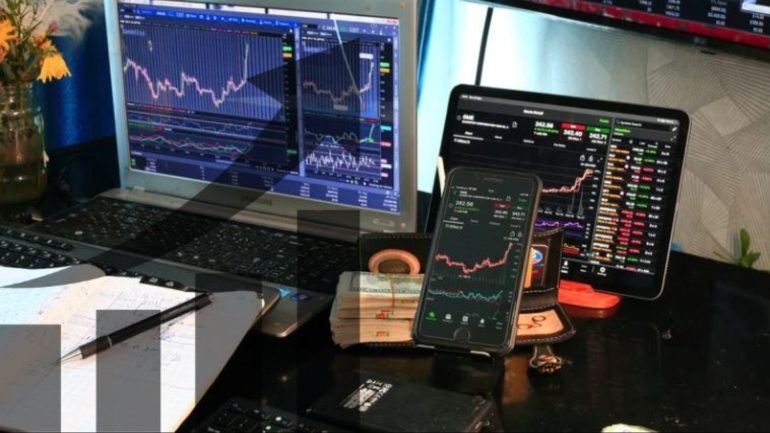- FTSE 100 Index is down despite the UK's trade deal with the US, as tariffs return to focus. However Russia-Ukraine war carries some tailwinds.
The FTSE 100 Index (INDEXFTSE: UKX) was down by 0.12% at 8,776 points in the afternoon session, mirroring the decline in the broader global equities markets. Its largest weighted stocks had mixed results, with AstraZeneca (LSE: AZN) at -0.95%, Unilever down by 0.32% and Barclays (LSE: BARC) down by 0.32%. However, Shell (LSE: SHEL) and BP stock prices was up by 1.18% and 1.02% respectively as oil rose on Russia-Ukraine war escalation. The geopolitical risk sentiment also pushed up defence stock, BAE Systems (LSE: BA) to +1.18%, while Rolls Royce stock price (LSE: RR) was at +0.44%.
Stock Markets have started the week on a sour note as investors retreat in the wake of renewed trade tariff fears. US President Donald Trump reignited the bearish sentiment after accusing China of “totally defying” the terms of a ninety day consensus reached between him and China’s Xi Jinping. On its part, China accuses the United States of severe violations of the agreement, highlighting visa bans against Chinese students, restriction of chip exports to China and warning against using Chips made by Chinese manufactures.
Also, Trump promised US steel workers last week that he will impose 50% tariff on aluminium and steel imports as a measure to protect US industries. That has attracted both criticism and threats of retaliation from the European Union. This set up raises the potential of a return to the high tariff levels seen in May. While the UK has already secured its trade ties with the US, the FTSE 100 will likely feel the pinch due to the downward pressure on affected markets.




